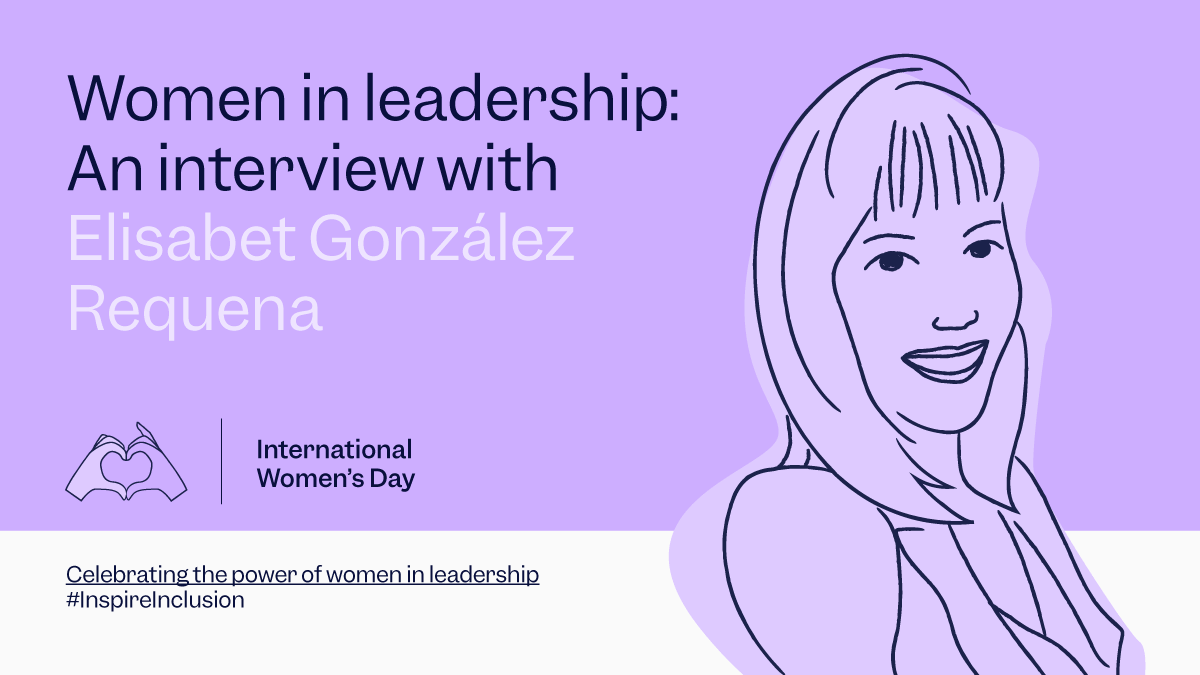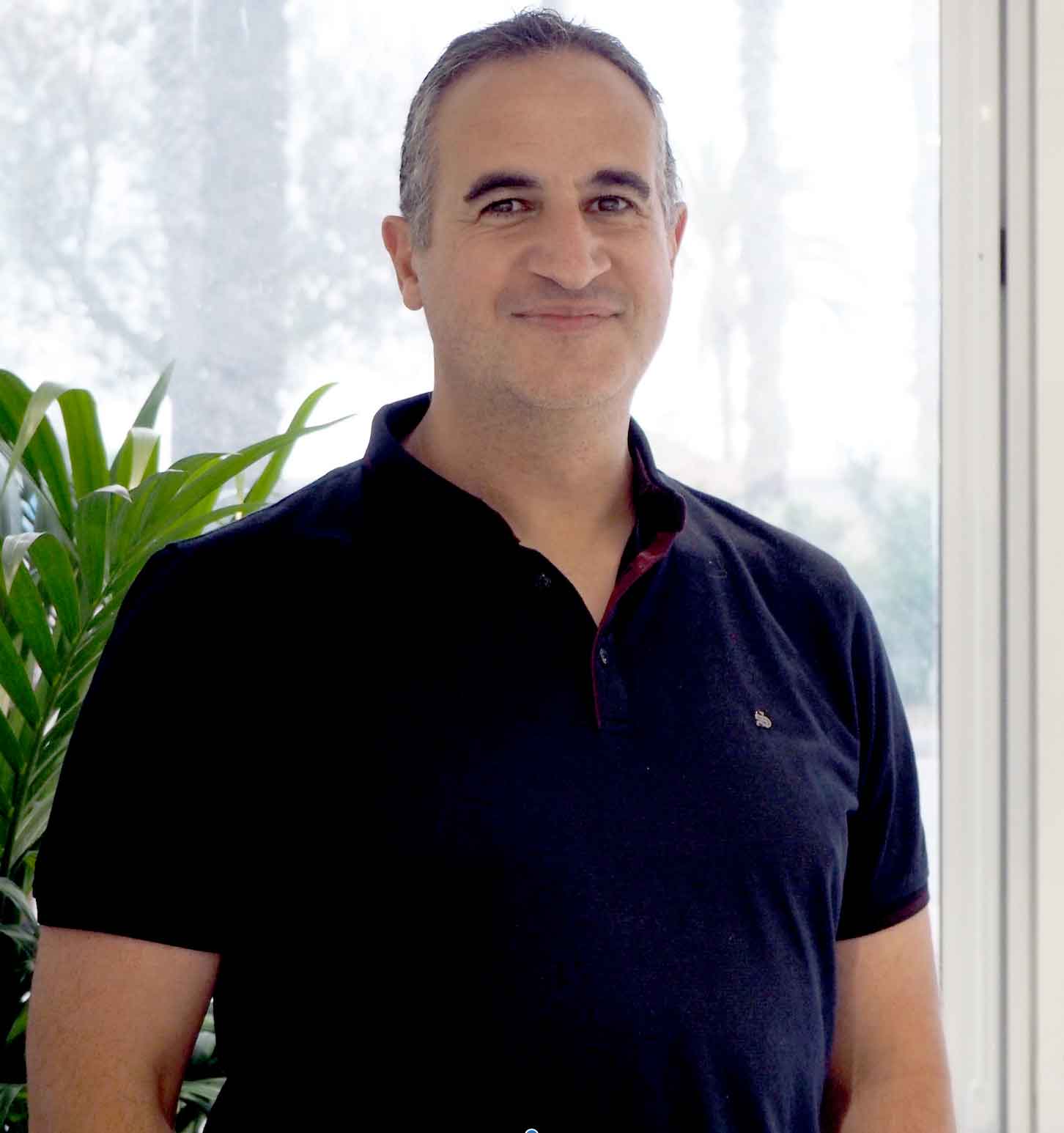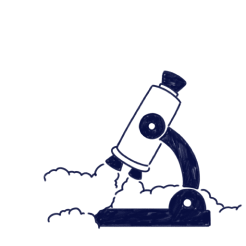
We talked with our VP of Brand & Demand about developing a more inclusive workplace.
Elisabet González Requena, VP of Brand & Demand at Scilife, embarked on her journey with Scilife in July 2021, initially joining the marketing department. Now serving as the VP of Demand and Brand, Elisabet is tasked with overseeing the operations of various departments, aiming to ensure their collective success.
Her role involves managing cross-departmental operations and tactics, collaboratively working towards the achievement of each department's end goals. With her comprehensive oversight, Elisabet plays a crucial role in steering the company's strategic direction and operational excellence.
With her perspective as a woman in a leadership position, we asked for her input on mitigating gender imbalances in top roles, her professional victories, and her strategies for building a workplace that values diversity and inclusion.
According to McKinsey, due to gender disparity in early promotions, men end up holding 60% of manager-level positions in a typical company, while women occupy 40%. What factors do you think have caused a gender imbalance in the workplace, specifically amongst senior leadership roles?
To be honest with you, I think there's still a significant presence of gender imbalance within some companies that leads to missed opportunities. In the past, I’ve observed how the contributions or ideas of exceptionally intelligent and creative women have sometimes been overlooked or undervalued. This could be due to historical biases and I think we are still holding a lot of weight from the past.
The same goes for environments where leadership is predominantly male. I’ve witnessed how in certain businesses, there is still unconscious bias at play that might lead to men in leadership roles promoting other men over women. I’m not sure whether it is because women are still in the spotlight when it comes to motherhood vs professional career, but the thing is this pattern isn't new; it's been observed historically. Despite this being an issue from many years ago, its echoes are still felt today.
Have you faced any barriers in your career due to being a woman? If so, how did you overcome them?
Luckily for me, I haven't faced barriers that prevented my promotion. However, I've been in situations where, possibly because I'm a woman, my ideas weren't initially favored. Despite this, I’m very strong-willed and I think that my determination and hard work have often helped me overcome these challenges, ultimately earning recognition for my work.
Being a woman, I feel this might have meant I’ve had to work harder than if I were a man. This was more of an issue in the past, as at Scilife, I've not experienced this bias. In fact, it's the other way around here.
In previous roles and different contexts, I noticed my opinions were less valued, which was surprising and far from my understanding of professional relationships. I believe in valuing good ideas, regardless of whether they come from a man or a woman. It's puzzling to me why some still hold onto outdated biases. Sometimes I'm not 100% sure that the problem is sexism, but it probably stems from it, or unconscious bias in the end.
How can leaders and organizations more effectively challenge and change these barriers to ensure inclusion?
Reflecting on it, it's about recognizing our biases and then pausing to consider them. For instance, questioning whether we're dismissing an idea simply because it comes from a woman, or if it genuinely doesn't meet our expectations. I think that taking that moment for a second thought can be helpful.
How important have allies been in your career, and what actions can everyone take to be a more effective ally for women?
I think having allies throughout your career is really important. Reflecting on my experiences, I’ve come to realize how some of my leadership opportunities were influenced by the encouragement and recognition of professionals I worked with, including women. This highlights the value of support and acknowledgment within the professional environment, fostering a culture of empowerment and shared success.
I think being mindful of our words and actions is deeply relevant here, especially in the context of subtle biases. These small, often unintentional actions can undermine equality in the workplace. As women, we may be more sensitive to these nuances and it’s important to address subtle biases because some people are not aware they are doing it.
I would say that here in Scilife, the collective dedication and hard work we have, create a cohesive and positive work environment, transcending gender differences. We are part of a team where everyone's talent and commitment to goals make it an inspiring place to be. I think we are quite lucky to work here as Scilife's culture is one of mutual respect and commitment. There's a shared effort to maintain an inclusive environment, free from significant bias in the workforce, management, and everyday interactions.
In your opinion, what’s a good indicator to measure gender equality in the workplace?
Actually, taking a look at who holds positions of leadership in a company can really open your eyes to the potential for gender equality within that organization. If you see that women are allowed to hold leadership roles, it's a strong signal that being a woman won't hinder your opportunities there. This makes it a reliable indicator of the company's commitment to gender equality. The gender ratio, especially in leadership, can serve as a tangible measure of the company's equality practices.
Reflecting on your career, what stands out as your biggest achievement or the accomplishment you're most proud of?
That’s a difficult question but there are a couple of things I'd highlight. First, changing my career path is something I'm quite proud of, especially since I've been successful in this new change. Previously, I was in a completely different field, so becoming a VP here represents a significant achievement for me.
This journey has been full of challenges, with each day bringing something new, but it's been rewarding. I'm proud of the progress we've made together and my role in leading us to a successful place. This transition meant stepping out of my comfort zone, considering I moved from another industry entirely. I used to work in the hotel industry after studying tourism. Feeling the need for a change, I pursued a Master's degree in Digital Marketing, which eventually led me to Scilife.
At some point, you realize you need change, and being brave enough to pursue it can lead to something good.
What would your advice be to women who are trying to achieve their career ambitions?
My advice to women pursuing their career ambitions would be to be extremely stubborn but in a positive way. Never stop trying, and remember, if you fall, there's always an opportunity to get back up. So, perseverance is crucial and is probably the best advice I can give. Sure, we all need to pause at times, but generally, it's important to keep moving forward if you're set on reaching your goals.
Is there anyone who has inspired you in your career?
To be honest, I've never had one specific person as my inspiration. However, whenever I see a woman in a significant or powerful position, it really inspires me. Observing a woman achieve such high levels, especially in contexts where societal norms might not favor it, is incredibly motivating.
So, I'd say any woman who has reached a high position serves as an inspiration to me, making me believe that it's possible. While I might not aspire to be exactly in their position, seeing their success encourages me to pursue whatever goals I have. It's not about filling their shoes but being inspired to achieve my ambitions.
Why is it important for all companies to strive to have good gender diversity both within their workforce and among their leadership?
I think the mixture of male and female energies contributes significantly to a company's output, particularly in terms of ideas and focus. A balanced mix, I feel, is key to achieving success. This is why it's crucial for there to be a good balance not just within the workforce but also in leadership roles. The perspectives of men and women differ greatly, and combining these can lead to more comprehensive and effective solutions.
I've noticed that the approach to work can also differ by gender, with women often bringing more detail-oriented and thoughtful insights. Meanwhile, men are often more direct and are good at fast decision-making. The synergy of these approaches, I believe, creates the perfect combination. It allows for a balance where actions aren't taken too hastily without proper analysis, and conversely, decisions aren't overly delayed. This balance ensures that the strengths of both genders enhance the overall productivity and innovation within a company, allowing everyone to contribute their best.
What does International Women’s Day mean to you?
To me, International Women's Day represents an important starting point, acknowledging that there's still much work to be done towards gender equality. It serves as a day for reflection and an opportunity to raise awareness. It's a chance for people to read an article or a blog post, recognize similar issues within their own companies, and think about what actions they can take to initiate change or offer support. I would say, it offers the opportunity to do things right.
I'm happy to be here, in a leadership position, because I want to show society that achieving such roles is possible. It might inspire someone who doubts their capabilities to realize that they, too, can achieve their goals. There are opportunities available; it's just about taking that small, significant step forward. I'm simply trying to add my small contribution by taking part in this interview, hoping to inspire and energize anyone who reads it. That's how I view International Women's Day and its significance to me.





